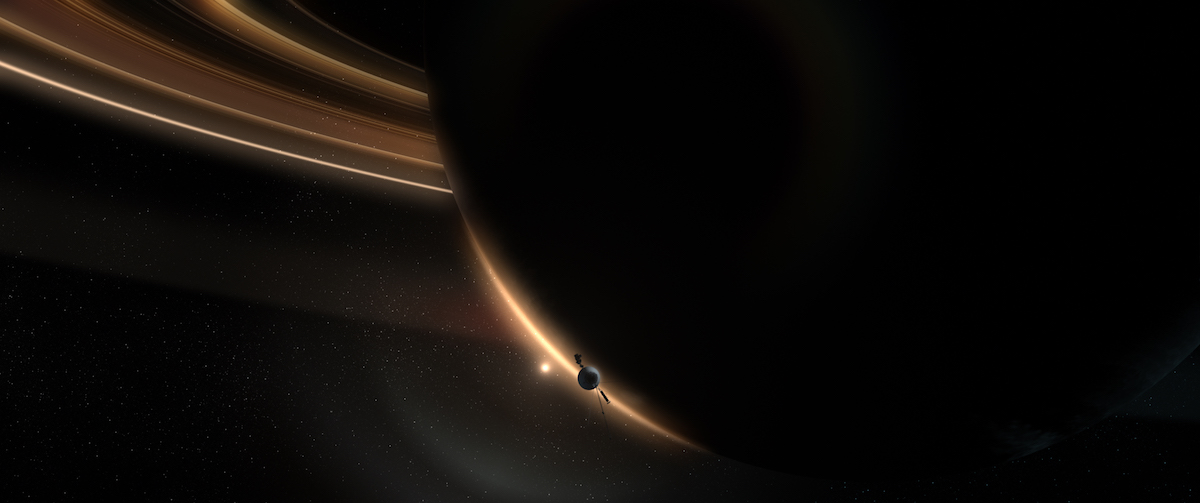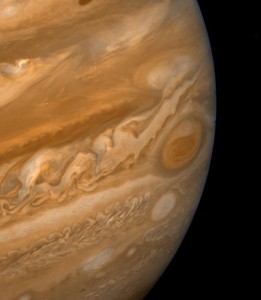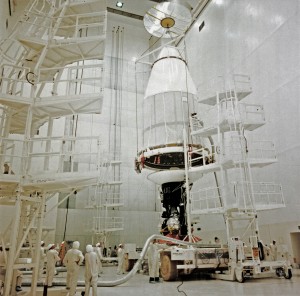Communiqué

PBS Launches Exciting Lineup of Space Exploration
< < Back to– Discover Outer Space Beginning Monday, August 21 With NOVA “Eclipse Over America” and
THE FARTHEST – VOYAGER IN SPACE on Wednesday, August 23 –
– Part Two of Scott Kelly’s Journey BEYOND A YEAR IN SPACE Premieres Wednesday, November 15, 2017 –

PBS has five new programs on the horizon, exploring the solar eclipse, the outer reaches of space and the inner workings of the human body after a year spent in space. NOVA “Eclipse Over America,” premiering Monday, August 21, documents the first total solar eclipse over the United States in more than a generation, followed on Wednesday, August 23, by THE FARTHEST – VOYAGER IN SPACE which details the epic achievements of NASA’s 1977 Voyager mission. Coming to NOVA on Wednesday, September 13 is “Death Dive to Saturn,” a closer look at the Cassini spacecraft’s journey. Then, on Wednesday, November 15, BEYOND A YEAR IN SPACE, Part Two of A YEAR IN SPACE, chronicles astronaut Scott Kelly’s return and adjustment to life on Earth after spending 12 months on the International Space Station.
PBS KIDS continues its hit space-themed series READY JET GO!, taking young viewers on far-flung learning adventures through astronomy, technology, scientific exploration, innovation and invention. PBS Digital Studios’ SPACE TIME explores the outer reaches of space, the craziness of astrophysics, the possibilities of sci-fi and anything else imaginable beyond planet Earth. Coming in 2019 in conjunction with the 50th anniversary of the Apollo 11 moon landing, AMERICAN EXPERIENCE presents “Chasing the Moon,” a four-hour documentary about the space race.
“These PBS programs will bring the mysteries and miracles of space right into the homes of our viewers,” said Beth Hoppe, PBS Chief Programming Executive and General Manager, General Audience Programming. “Each program explores a different element of outer space, aiming to educate and captivate audiences everywhere.”
Below is the full list of space programs coming to PBS:
NOVA “Eclipse Over America”
Monday, August 21, 2017, 9:00-10:00 p.m. ET
Join scientists and citizens alike as they observe the first total solar eclipse to traverse the U.S. mainland in more than a generation. Discover the storied history of eclipse science and follow current, cutting-edge research into the solar corona.

10/19/1977
THE FARTHEST – VOYAGER IN SPACE
Wednesday, August 23, 2017, 9:00-11:00 p.m. ET
Learn how NASA’s epic Voyager mission, launched in 1977, revolutionized our understanding of Jupiter, Saturn, Uranus, Neptune and their dazzling moons and rings. In 2012, Voyager 1 left our solar system and ushered humanity into the interstellar age.
NOVA “Death Dive to Saturn”
Wednesday, September 13, 2017, 9:00-10:00 p.m. ET
For more than a decade, the Cassini spacecraft has been sending dazzling images of Saturn’s breathtaking rings and mysterious moons. A suspenseful ride during Cassini’s final hours as it dives into Saturn’s atmosphere.
A YEAR IN SPACE (Encore)
Wednesday, November 15, 8:00-9:00 p.m. ET
Follow astronaut Scott Kelly’s record-breaking 12-month mission on the International Space Station, from launch to landing, as NASA charts the effects of long-duration spaceflight by comparing him to his identical twin on Earth, astronaut Mark Kelly.
BEYOND A YEAR IN SPACE
Wednesday, November 15, 2017, 9:00-10:00 p.m. ET
Picking up where the first film left off — Scott Kelly’s last day in space and return to Earth — the final installment also introduces the next generation of astronauts training to leave Earth’s orbit and travel into deep space.
NOVA “Eclipse Over America”, THE FARTHEST – VOYAGER IN SPACE, NOVA “Death Dive to Saturn”, and BEYOND A YEAR IN SPACE will be available to stream the morning after broadcast on all station-branded PBS platforms, including PBS.org and PBS apps for iOS, Android, Roku, Apple TV, Amazon Fire TV and Chromecast.

